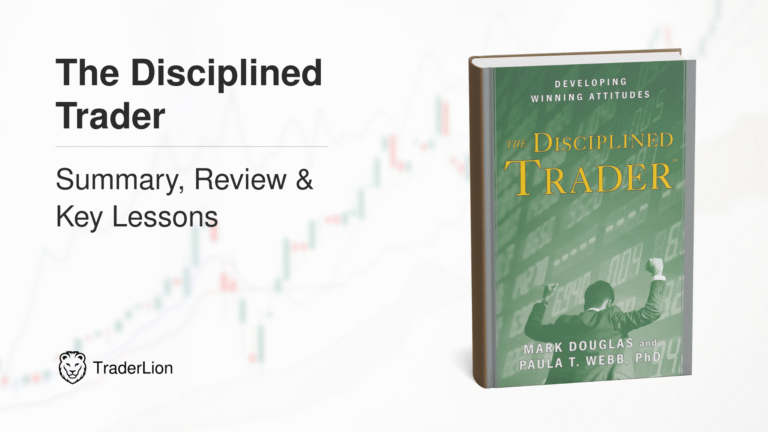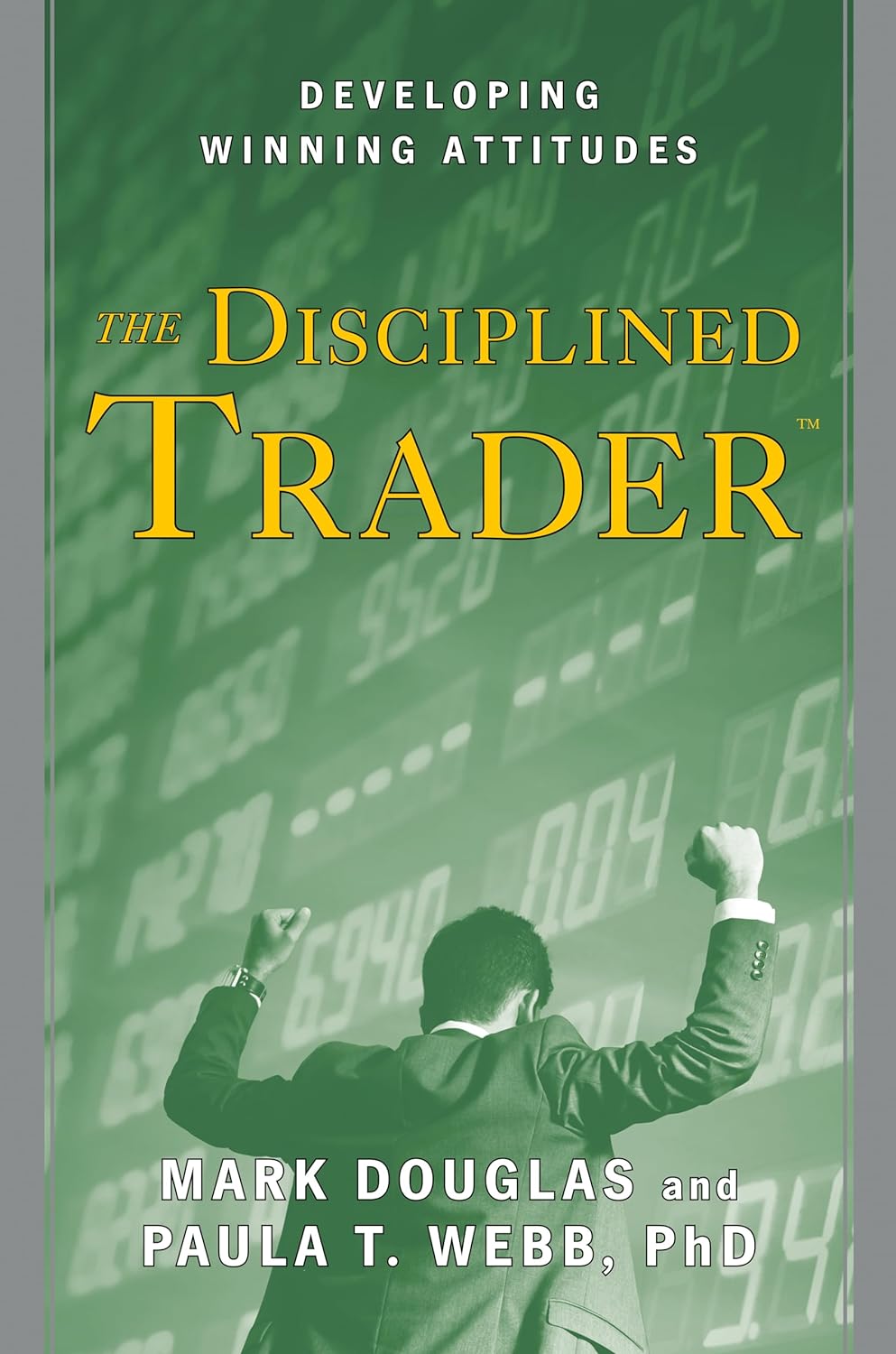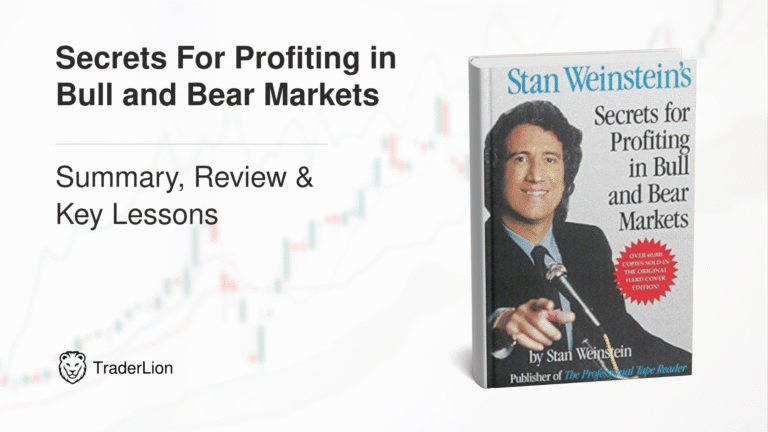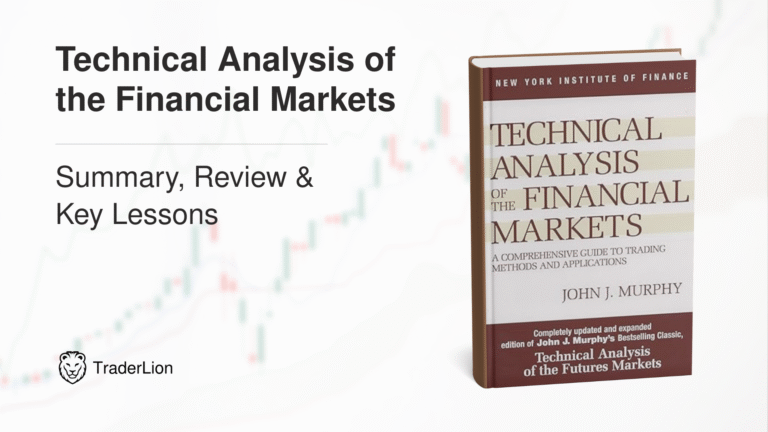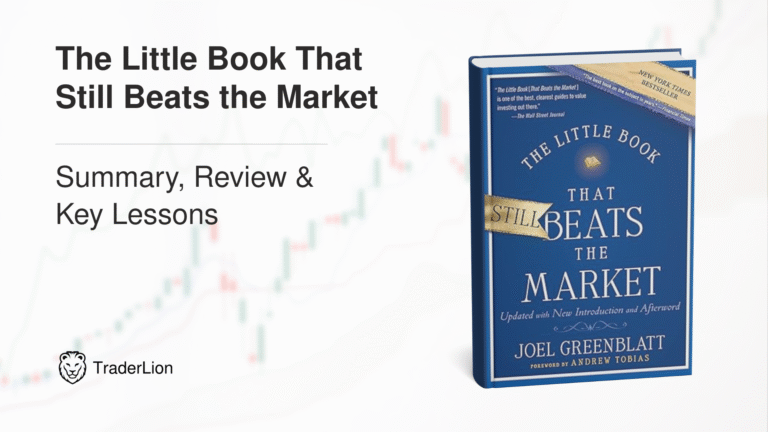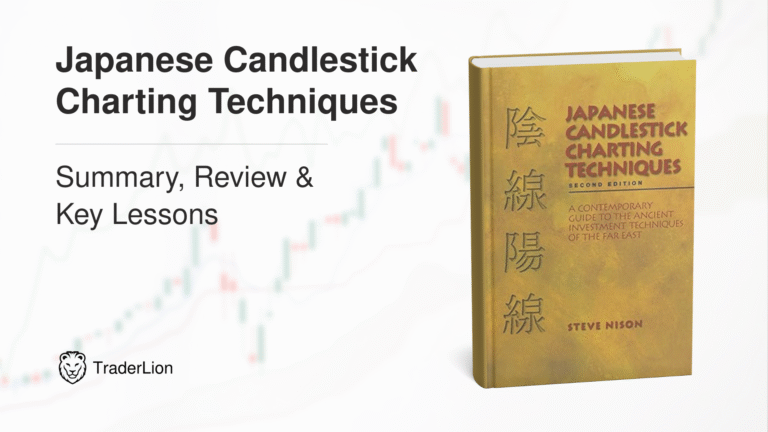After a certain point, traders don’t struggle because they lack technical knowledge. They struggle because their psychology isn’t built to withstand the realities of a chaotic market. That’s exactly the pain point The Disciplined Trader addresses head-on.
Written by Mark Douglas and published in 1990, this book was one of the first serious efforts to break down trading into its true components: belief systems, psychological conditioning, and the mental adaptations necessary for consistency. It strips away illusions, ego, and misaligned motivations, replacing them with raw truths about what it really takes to be a disciplined trader.
Quick Facts About The Disciplined Trader
Who Is Mark Douglas and Why Listen?
Before Douglas, the emphasis was on systems, patterns, and market theories. But his work focused on what’s inside your head. Having traded himself and worked with hundreds of traders during his time at Trading Behavior Dynamics, Douglas understood that successful trading isn’t about being right; it’s about being mentally aligned with uncertainty.
He filed for bankruptcy early in his career, which gave him a firsthand crash course in the emotional minefield traders face. That brutal experience shaped the philosophy behind The Disciplined Trader. Douglas went on to become one of the most respected voices in the field of trading psychology. His work is still required reading at institutional firms and among serious independent traders.
What is The Disciplined Trader About?
This book dives deep into the psychological traps that derail traders, fear, denial, revenge, and the illusion of control. Douglas explains why most of us enter trading with a mindset built for structured environments, not the fluid chaos of markets. He shows how emotional baggage clouds decision-making and leads to inconsistency.
The book breaks trading down into a mental discipline where your real edge is how you think, not what you know. It’s not about forecasting the market, it’s about managing your own behavior and beliefs so you can respond consistently to opportunity.
The Disciplined Trader Chapters at a Glance
Why The Disciplined Trader is a Must-Read
He maps out why your upbringing and life experiences leave you completely unprepared for the freedom of the market. In real-world terms, that freedom often leads to self-destruction. The book lays out a process for identifying and replacing the internal narratives that cause hesitation, denial, and reactive behavior. It’s not motivational fluff. It’s a practical system for mental rewiring. You learn to distinguish between helpful and harmful thought patterns, recognize when fear or greed is taking control, and recondition yourself to respond with discipline.
What makes this book indispensable is that it’s not locked in time. Market structure evolves, but human psychology doesn’t. The issues Douglas diagnosed in 1990 are still killing traders today. His method for building objectivity, emotional detachment, and rule-based execution remains one of the most practical toolkits out there. If you’re serious about becoming a consistent trader, it belongs on your desk.
Top Lessons to Apply to Your Trading
1. You are the only variable you can control
Markets will do what they do. You can’t control price. You can only control yourself. Douglas hammers this point and backs it with examples showing how most traders burn out trying to force outcomes. Your power lies in choosing how you respond, not in predicting what’s next.
2. Define your rules before the trade, not during
When money’s on the line, emotion hijacks logic. The only way to trade consistently is to make all decisions before you’re in the heat. Douglas teaches how to predefine your actions so you’re never improvising under stress.
3. Mistakes come from the mental environment, not the market
Douglas shows that repeated errors—holding losers, chasing, freezing—aren’t about the market. They’re expressions of unexamined fears and beliefs. Change your mental environment and the mistakes disappear with it.
Common Mistakes The Disciplined Trader Helps Fix
1. Revenge trading
The book breaks down why traders feel wronged by the market and how that ego-driven response leads to bigger losses. Douglas helps you break that cycle by reframing your identity from fighter to observer.
2. Chasing certainty in a random environment
He dismantles the illusion that the market can be mastered through prediction. That mindset leads to overconfidence, bigger positions, and eventual wipeouts. Instead, he instills a mindset of adaptability.
3. Paralysis in execution
Many traders know what to do but freeze in real-time. Douglas explains how fear-based beliefs create this block and shows how to replace them with new rules and confidence systems.
The Disciplined Trader vs Trading in the Zone
Trading in the Zone picks up where this book leaves off. Read our full Trading in the Zone review here.
Best Quotes from The Disciplined Trader
“The market is always right.”
This quote forces traders to stop arguing with price. The market doesn’t make mistakes. If your position is bleeding, it’s not the market’s fault, it’s yours. This shift in thinking removes blame and puts the focus back on your execution and analysis.
“You can either let the market make you or break you. It’s your choice.”
Douglas makes it clear that the market is neutral. It’s how you interact with it that determines your experience. That’s empowering. It means you’re not a victim, you’re a participant.
“You create your experience of the market.”
This is the essence of the book. The market doesn’t make you anxious, frustrated, or greedy. You do, through your expectations, beliefs, and conditioning. When you own that, you gain the power to change it.
Read more quotes from Mark Douglas categorized by theme.
Who Should Read The Disciplined Trader
The Disciplined Trader is for traders who’ve realized that knowledge isn’t enough. If you’re already familiar with technical analysis, have a strategy, and still find yourself sabotaging good setups, this is for you. Newer traders who want to build discipline before they bleed too much capital will also benefit.
On the flip side, if you’re looking for a mechanical system or entry-exit rules, look elsewhere. This isn’t that book. It won’t give you setups. It gives you the mental stability to execute setups you already know. And if you’re still blaming the market, your broker, or the news, this book is a waste on you. It only clicks if you’re ready to own your results.
Final Thoughts on The Disciplined Trader
The core pain point this book solves is inconsistency driven by emotion. That’s the real killer of trading careers. Douglas gives traders a new lens for understanding themselves and offers a mental reset for how to approach the game. The insights in The Disciplined Trader are foundational especially if you’ve ever felt powerless to stop destructive habits like holding losers, exiting winners too early, or missing trades out of fear.
The big insight here is the importance of self-responsibility. Douglas teaches traders to write rules that reflect their own risk tolerance and then follow them regardless of outcome. That discipline compounds into trust, and that trust is what powers consistent execution.
TraderLion’s verdict: Essential.
If you’re serious about trading for the long haul, this book belongs on your desk.

